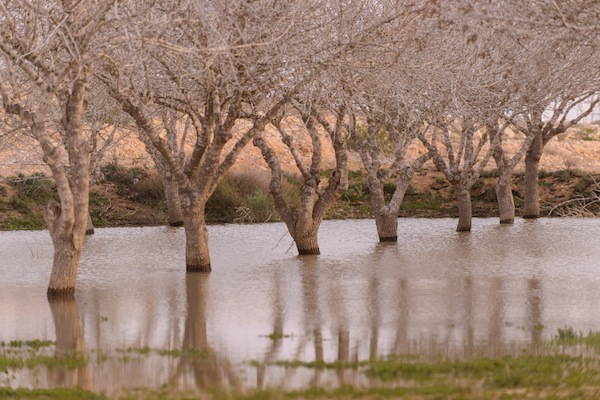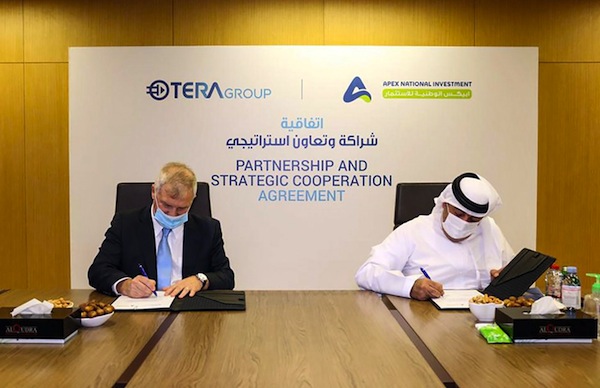Team Canada’s 600-strong contingent marched into the opening ceremonies of the quadrennial Maccabiah Games July 14 at Jerusalem’s Teddy Coliseum. They were led by a trio of flagbearers – Toronto’s Molly Tissenbaum, a hockey goalie who has overcome serious health challenges to return to the ice, and Calgary twins Conaire and Nick Taub, volleyball players who are slated to enrol at the University of British Columbia in the fall. Canada sent the fourth largest team to the 21st “Jewish Olympics,” after Israel, the United States and Argentina.
The flag-bearing trio, their 600 teammates and about 10,000 others streamed into the stadium at the start of the largest-ever Maccabiah Games. Also on hand was an American visitor, President Joe Biden, who was the first U.S. leader to attend the event, flanked by Israel’s President Isaac Herzog and Prime Minister Yair Lapid.
The trio of leaders appeared jubilant, and no doubt there is a natural bond between Biden and Lapid that neither shares with either the former U.S. president Donald Trump or the once and possibly future Israeli prime minister Binyamin Netanyahu, who had a legendary bromance together.
While athletes began their friendly skirmishing for medals, the politicians began skirmishing themselves, around issues more existential than soccer scores.
Whatever personal affinity Biden and Lapid might share is at least partly restrained by reality. Lapid took over from Naftali Bennett as a sort of caretaker during the election campaign. Whether he remains leader after the votes are counted in November looks, at this point, less than likely.
Far more importantly, the two leaders disagree on the approach to Iran’s nuclear threat.
“Words will not stop them, Mr. President,” Lapid told Biden in their joint public remarks. “Diplomacy will not stop them. The only thing that will stop Iran is knowing that … if they continue to develop their nuclear program, the free world will use force. The only way to stop them is to put a credible military threat on the table.”
Biden has returned the United States to the Obama administration’s approach, aiming to revive the 2015 agreement between Iran and the West, which was supposed to slow that country’s march to nuclear capability. Trump withdrew the United States from the deal.
After Biden left Israel and headed to Saudi Arabia, words heated up dramatically Sunday. A top aide to the Iranian leader asserted that Iran already has the capability of creating a nuclear bomb but has chosen not to do so. In response, Aviv Kochavi, head of the Israel Defence Forces, responded with uninhibited forewarning.
“The IDF continues to prepare vigorously for an attack on Iran and must prepare for every development and every scenario,” Kochavi said, adding that, “preparing a military option against the Iranian nuclear program is a moral obligation and a national security order.” At the centre of the IDF’s preparations, he added, are “a variety of operational plans, the allocation of many resources, the acquisition of appropriate weapons, intelligence and training.”
Meanwhile, the inevitable moving pieces of Middle East politics continued shifting.
Biden walked a fine line, visually demonstrated by his choice to fist-bump rather than embrace the Saudi leader Mohammed bin Salman, who has on his hands the blood of dismembered journalist, author and Washington Post columnist Jamal Khashoggi, whose grisly murder at a Saudi consulate in Turkey shocked the world. Rumours of warming relations between Saudia Arabia and Israel – the rumours go from the opening of Saudi airspace to Israeli planes, to the full-on recognition of Israel – remain mostly that. Saudis reiterated the old orthodoxy that relations would never develop until there is a Palestinian state.
The United Arab Emirates, meanwhile, is openly mooting returning to diplomatic relations with Iran after six years. The UAE has sided with the Saudis against Iran in the ongoing proxy war in Yemen, but the Emiratis are making noises about “deescalating” tensions.
Back in Israel, meanwhile, divergent approaches to issues foreign and domestic are very much on the front burner. With the diplomatic niceties of welcoming the leader of Israel’s most important ally now in the past, parties are holding their primaries to select their leaders and lists for the Nov. 1 vote – the fifth since April 2019 – and forming new partnerships that reshape the landscape in advance of the nitty-gritty campaigning to come.
Much closer in time, the Maccabiah Games close Tuesday, with final results expected to be more definitive than the national election, which will almost inevitably end up with weeks of negotiations leading to a tenuous coalition government.


